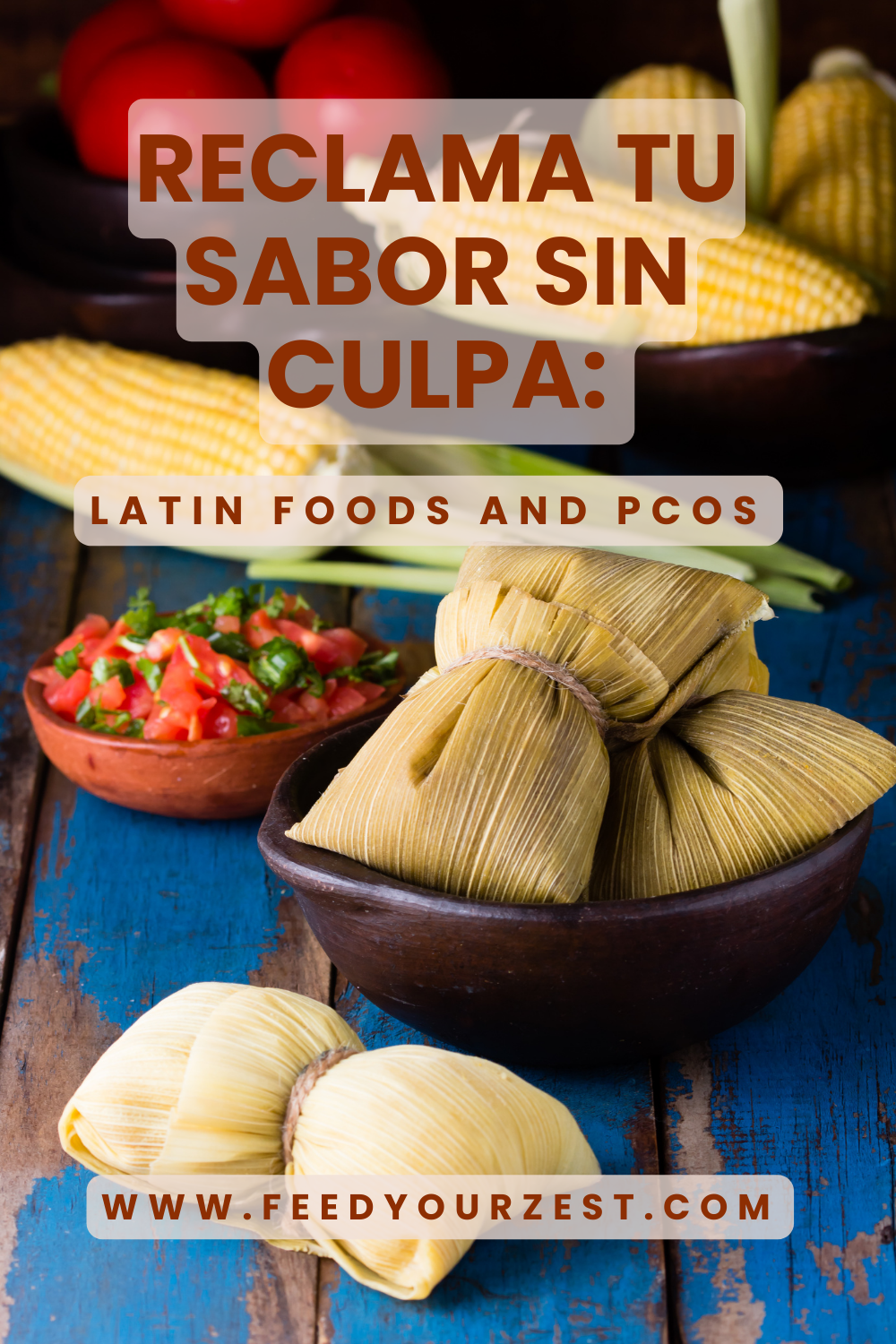Reclama tu sabor sin culpa: Latin Foods and PCOS
by Jamie Cotton - dietetic intern
Living with PCOS can sometimes feel like a whole other challenge, especially when it comes to food. We all know the stereotype that Latin food is heavy on carbs, loaded with fats, and fried. Don't get me wrong, I understand the stereotype, but that doesn't paint the whole picture. As a Guatemalan woman, I was raised on dishes like Pepian, Kak'ik, frijoles negros, and plátanos fritos, so the idea that it could be "nutritious" seemed almost laughable. Whenever I looked for "nutritious" Latin food options, it felt like I was sacrificing the flavors and traditions I loved. While some traditional dishes certainly fit that category (and by the way, there is nothing wrong with indulging them occasionally), Guatemalan cuisine and other Latin cultures offer diverse foods you can enjoy while managing your PCOS. With some creativity and knowledge, you can savor the tastes you love while nourishing your body.
Let’s start with the staples.
Mi amor por los frijoles:
Rich in protein and fiber, beans are a “superfood” that regulates your blood sugar levels, can help lower cholesterol, and helps with satiety. Enjoy them in soups, salads, and my favorite, homemade frijoles refritos (or, as we call them in Guatemala, frijoles volteados).
Rice and tortillas, not the villains:
Yes, they're carbohydrates, but don't let that scare you. You can make a complete and balanced meal by pairing them with protein, veggies, and fats. If you’d like, you can choose a whole grain version for a little extra fiber, too. No need to leave out the rice or tortillas the next time you cook fajitas or indulge in your favorite tacos or caldos (stews). Bonus: Corn tortillas already count as whole grains.¡Disfruta!
Corn masa harina, a nutritious multi-tool:
The base for tamales, tortillas, pupusas, atoles, empanadas, you name it. Corn Masa harina is gluten-free, whole grain, rich in vitamins and minerals, and often fortified with folic acid (super important for those trying to conceive!). Masa is so versatile, and it has been used for generations. It is the heart and soul of many Latin American dishes. Masa's culinary heritage proves that delicious and nutritious can go in hand.
Non-starchy vegetables fiesta:
Think about pico de gallo, classic salsa, calabacita, jicama, poblano peppers, radishes, and nopales. Each region in Latin America has its own veggies that add flavor and tradition to their dishes. Beyond their flavor, non-starchy vegetables have vitamins, fiber, and antioxidants, which are powerful allies for managing PCOS.
Living with PCOS doesn't mean sacrificing the rich flavors and traditions of Latin cuisine! So, the next time you enjoy your favorite Latin dish, take a moment to appreciate the cultural legacy and health benefits of Latin food. So, reclaim your flavor without guilt, savor every bite, and ¡Buen Provecho!
Want support in finding ways to honor your cultural traditions with food, while also nourishing your body for PCOS? We’d love to support you! Click here to apply for 1:1 nutrition coaching with one of our highly qualified PCOS dietitians.

